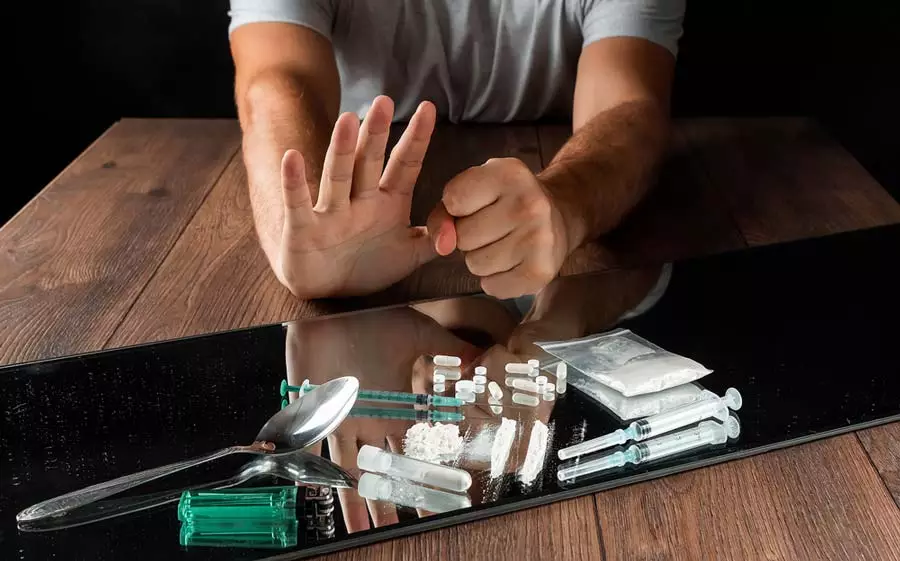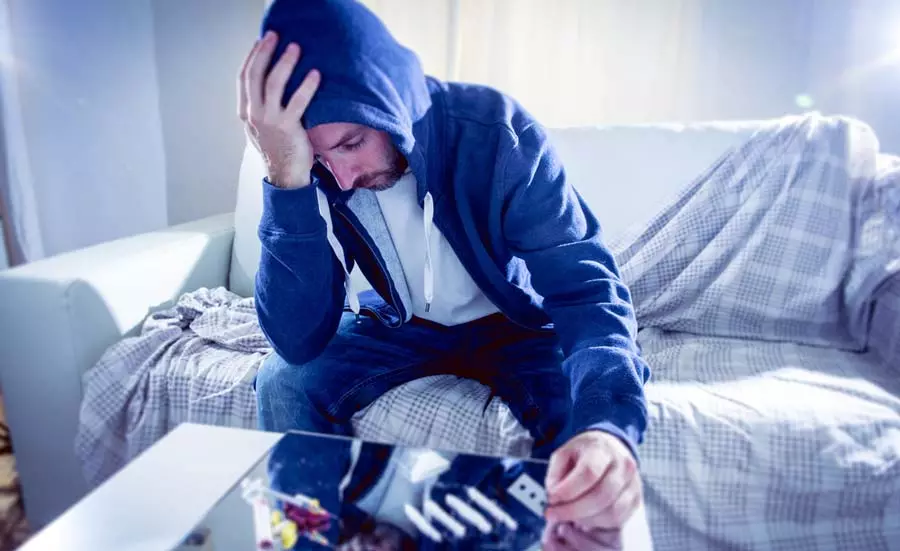Recognizing the Behaviors of a Heroin User
Understanding the signs of heroin addiction can be a very complicated process. However, it’s a very necessary process if you wish to help someone avoid the dangers of a heroin overdose and other substance abuse-related issues.
So, what are the signs and symptoms of heroin addiction? In this article, we’ll dive into different methods of recognizing heroin abuse, in addition to the causes and risk factors that lead to heroin addiction.
We will also highlight withdrawal symptoms, one of the most unpleasant experiences associated with heroin addiction. If you believe that someone you love might be struggling with heroin abuse, it’s important that you reach out and help them get treatment for the effects of heroin addiction.
Keep reading to learn more about opiate addiction, Signs of heroin use, effective forms of treatment, and the programs for recovery available at Catalina Behavioral Health now!
Licensed Drug Addiction Treatment
What Is Heroin Addiction?
Heroin addiction is a product of heroin abuse and includes a long list of signs and symptoms that accompany substance abuse heroin use. Users who gradually slip into heroin addiction typically first begin their journey as casual users of the drug.
Gradually, over time, they develop a mental heroin addiction, which is generally followed by full-blown physical heroin addiction, otherwise known as dependence. Not only do users need the drug to feel normal mentally, but they require it physically to avoid unwanted withdrawal symptoms.
There are certain risk factors that go along with heroin abuse, as is the case with most issues of substance abuse. However, the risk factors involved with the former are often far more severe than the latter.
Users who engage in heroin abuse risk the following symptoms:
- Heroin overdose
- Blood-borne pathogens (especially with IV use)
- Infectious diseases
- Abscesses
- Heroin withdrawal symptoms
- Heart-related issues
- Loss of memory
- Loss of coordination
- Financial challenges associated with addiction
- Psychological dependence
- Becoming physically dependent
- Legal issues stemming from heroin abuse
What Are the Causes and Risk Factors Associated with Heroin Abuse?

Causes and risk factors associated with short and long-term heroin misuse range from the most insignificant to the most major of challenges. However, certain prerequisites put individuals at a much higher risk of developing an addiction. The following list contains the most significant signs and symptoms exposing potential users to heroin addiction:
- Depression
- Family history of mental illnesses
- Family members with opiate-use backgrounds
- Experiencing some form of mental or physical abuse
- Bipolar disorder
- PTSD
- History of prescription pill use or abuse
- Issues with pain management
Those understanding heroin addiction quickly learn that these predisposed situations/challenges can significantly increase the chances of slipping into heavy drug use. The symptoms of heroin addiction typically start with one of these core symptoms, which ends up taking the form of what’s later known as a dual diagnosis.
But how does one go from casual drug use to displaying signs and symptoms of full-blown dependence? Let’s track the journey of a user.
24 Hour Heroin Addiction Hotline – Call Now!
The Gradual Progression of Heroin Users
Now that we have a better understanding of the behavioral symptoms associated with heroin users (symptoms, signs, moods, etc.), let’s take a look at the physical pathway a user takes from first use to full-blown addiction.
The First Use of Opioids
The first use of any opiate or opioid, not necessarily heroin use, but the first time an opioid pill or any other drug crosses the blood-brain barrier, the users, whether they realize it or not, experience the pleasant effects of certain receptors firing in the brain.
For most users, the initial experiences have nothing to do with drug abuse. When asked about their first experiences with opioids, most users with a physical dependence admit that their challenges started with a legitimate prescription pain medication regimen.
Mental Health Struggles and the Urge to Self-Medicate
Many of these people also have underlying mental illnesses – many of which aren’t even aware of the presence of these disorders. These co-occurring disorders are generally fuel to the flame of the intense decline into long-term heroin use. Understanding heroin addiction means becoming familiar with the challenges that lie at the core – this is the best way to achieve long-term recovery and avoid relapse.
Moving forward, these receptors that fire in the user’s brain give them a “feel good” moment where they may be pain-free and forget about their stress or other issues in life. In short, it causes them not to feel, which is why the symptoms of heroin abuse include co-occurring disorders. They’re dulling the feelings of a mental disorder they may not even realize they have.
Repeated Use of Opiates
When it comes to heroin use and the symptoms of heroin abuse, the first experience is when a fork in the road appears. Before more intense signs and symptoms manifest and users even try heroin, after experiencing those “feel good” symptoms, certain users will understand the risk of addiction and move away from subsequent use.
Unfortunately, this demographic is made up of a small percentage of people. Assuming the first experience is with pain pills, most users will continue to chase that feeling of euphoria. However, rarely will they segue immediately into using heroin. This is generally what comes next.
Moving From Prescribed Opiates to the Big H

During subsequent use and even as the body is forming a dependence, most people aren’t aware that they’re slipping into a full addiction. However, as mental health disorders are kept at bay, those with co-occurring disorders are further complicating the situation and feel very well mentally at this point.
Eventually, the supply becomes an issue, and users either:
- Can’t maintain their use via their prescription regimen
- Can’t afford a steady supply of prescription pills, or both
If the user has abused the opioid long enough, this is typically when they experience unpleasant withdrawal symptoms from the lack of opioids in their bodies. It’s normally at this point that the first actual heroin use takes place.
Abusing Heroin for the First Time
At this point, most users exhibit the signs, symptoms, and other initial indicators that there’s an issue with abusing drugs. After not being able to afford pills, the user may purchase illegal heroin and will experience the first effects of heroin addiction.
This puts them at acute risk of a heroin overdose, and a constant battle against heroin withdrawal. The presence of fentanyl in most street ‘heroin’ also is among the leading causes and risk factors in the epidemic of overdose. Eventually, the motivation to continue using slips away from chasing euphoria, into the quest to avoid heroin withdrawal.
First Time Dealing with Heroin Withdrawal
Because signs, symptoms, and other painful feelings take place when the opioid receptors are void of any type of opiate, users who withdraw from heroin soon realize they’re at the mercy of this highly addictive drug.
For some people, the effects of heroin detox turn into a medical emergency. The more prolonged heroin use is, and the more time spent abusing heroin, the worst the effects of heroin detoxification become.
Urge to Quit
Many of the users who abuse fentanyl, heroin, or any other substances, become acutely aware of the dangers of their use fairly early. This stems from either experiencing an overdose, seeing someone overdose, or just a general onset of the negative effects of abuse.
Typically they will go through cycles of using and being clean or at least developing the motivation to become clean, and back into full-time use. This is often the pattern with any illegal drug, but in the case of opioids, it seems to be especially volatile.
Considering Quitting Heroin Abuse

Many users segue back and forth between the methadone clinic and full-time abuse or attempt to manage their withdrawal with Suboxone treatments by using an at-home detox method. However, the latter rarely works, and the former is still detrimental to your health – at least if long-term use takes place. Methadone, or any other medication-assisted treatment, isn’t meant to act as a permanent solution.
Becoming trapped in this revolving door is extremely frustrating, and often there seems to be no way out. So how does a user finally stop getting trapped in this never-ending cycle? For most of those dealing with heroin, or takes a full-time effort at a treatment facility to finally make traction in the battle against addiction.
Immediate Placement for Addiction Treatment
Get Real Help for Opiates with Catalina
Getting real help for heroin looks different for many people, but it often begins with making those first steps to seek treatment. This generally consists of a medically-supervised detox with a transfer to inpatient rehab, where users can gain an understanding of exactly what they’re faced with during the abuse period.
It’s only with a full understanding of addiction itself and the reasons for the abuse that a user will truly begin healing. At Catalina Behavioral Health, we understand this and go to great lengths to serve those who need assistance.
If you or someone you love is battling heroin addiction, we can help. Our professional staff and compassionate environment have helped thousands overcome their challenges. For more information, contact our welcoming and dedicated Admissions team today!




